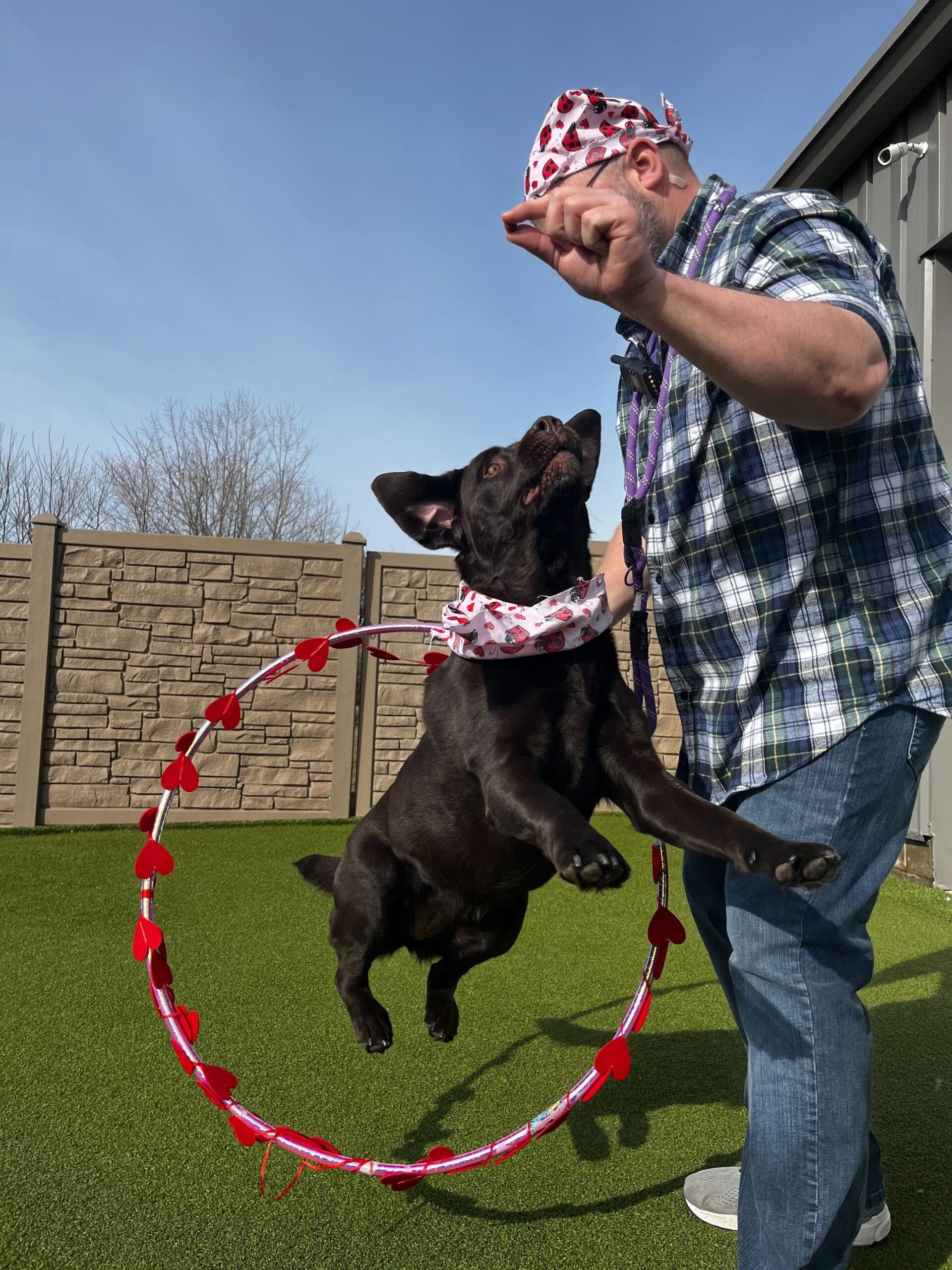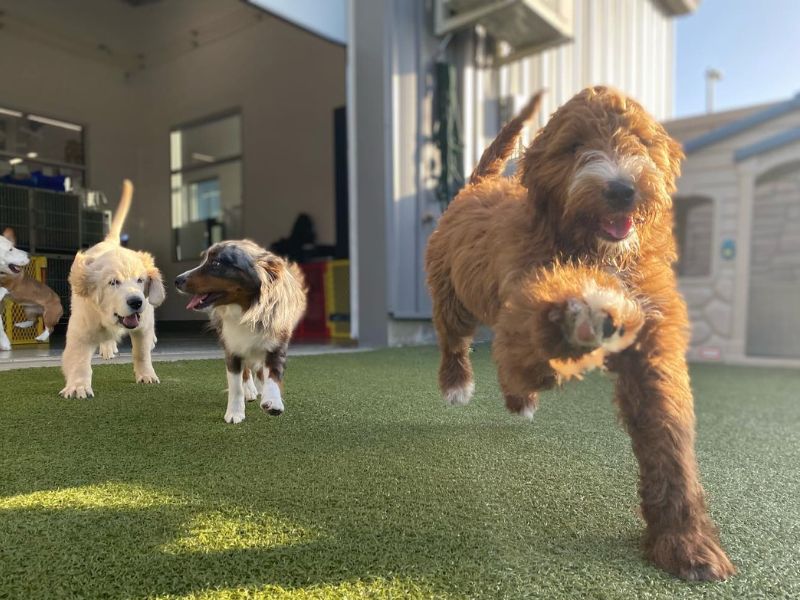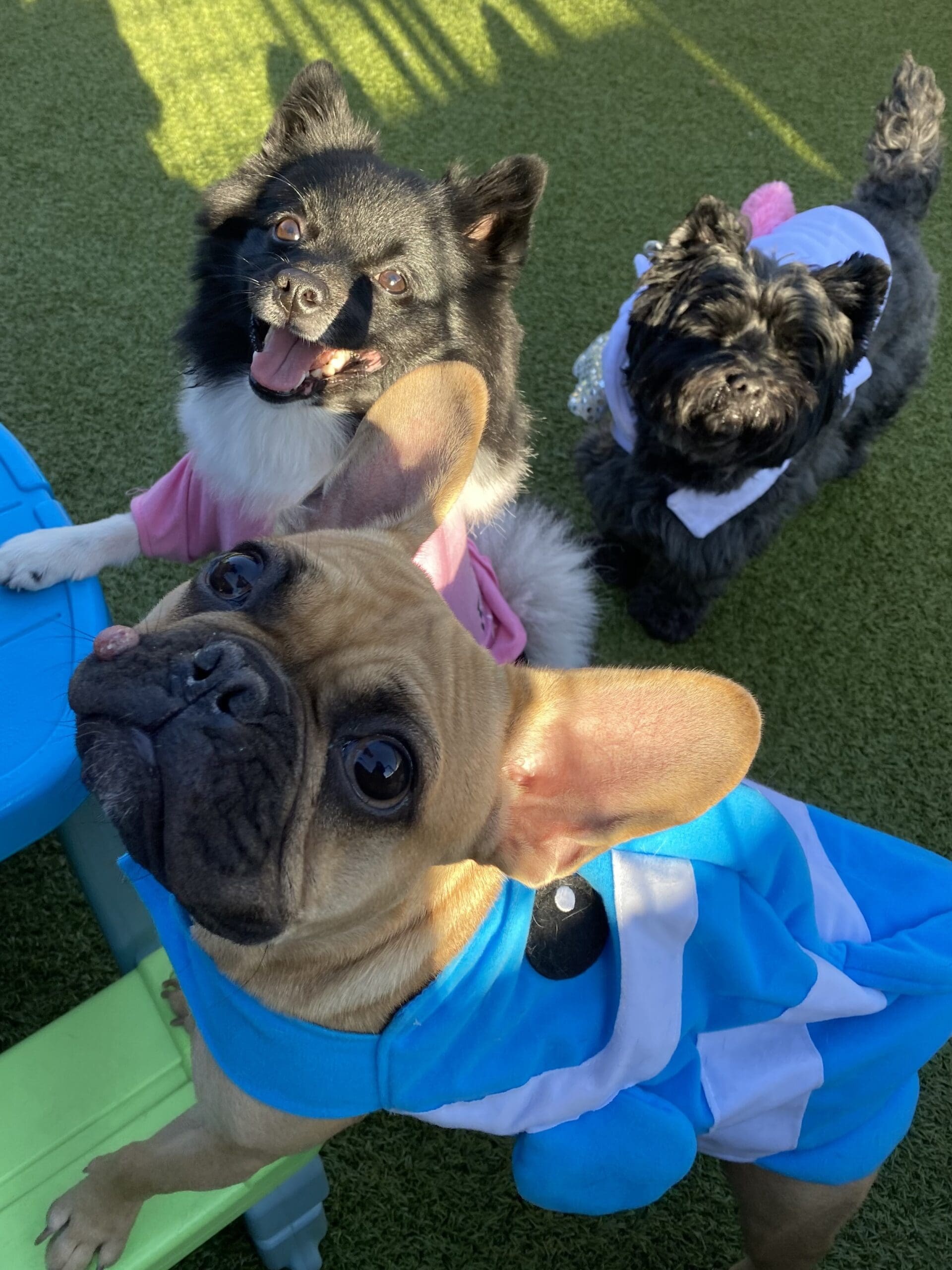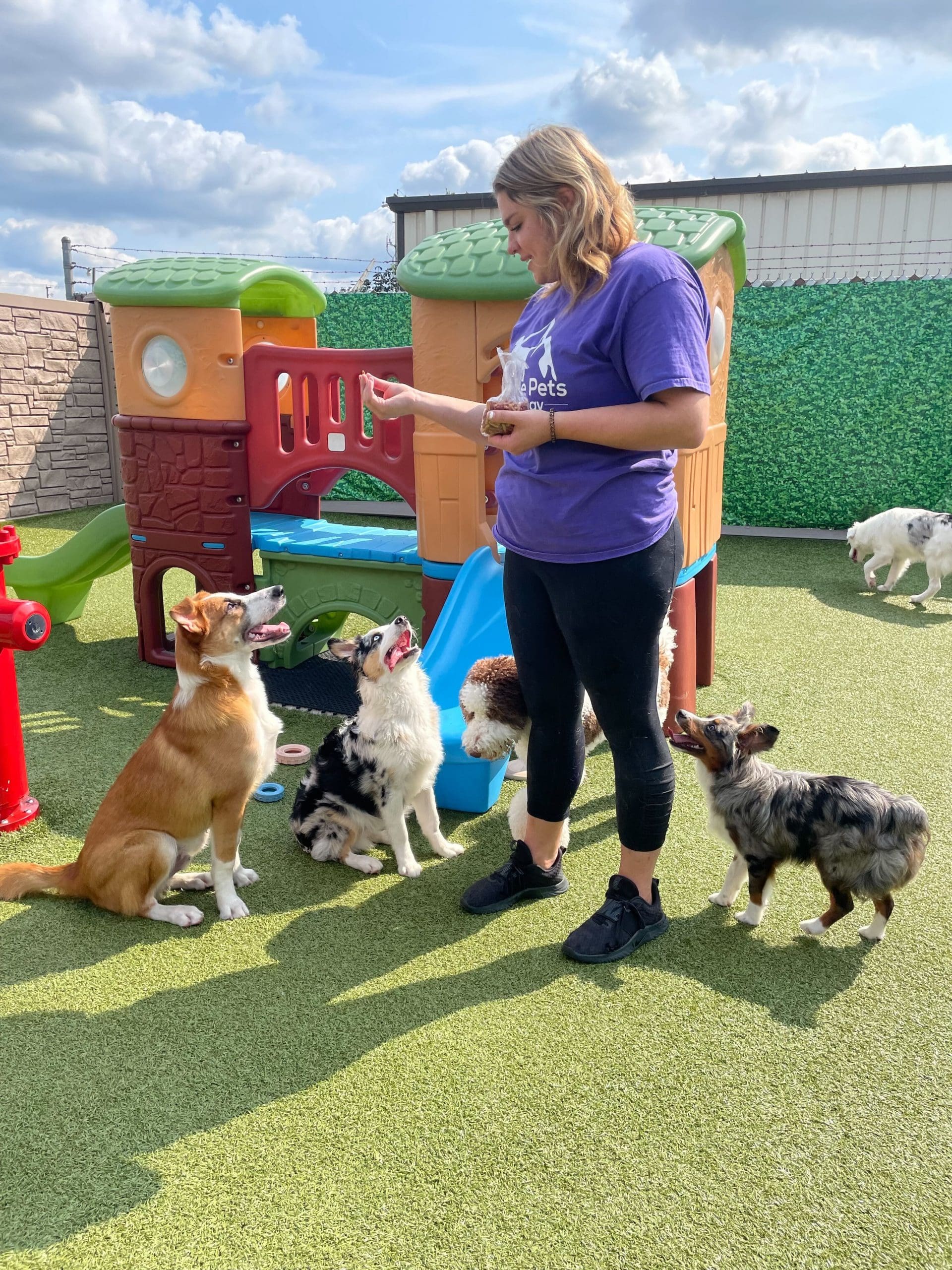Aging Out of Daycare
Social Maturing and Potential Changes in Daycare Enjoyment

The fact that people stay awake at night worrying about their dog making friends with other dogs used to be unheard of. Today, however, many pet parents shop for doggy daycare options long before bringing their new pooch home.
While doggy daycare is popular among dog owners, not all dogs feel the same about daycare. Some dogs really enjoy daycare in their puppy and early adolescent years but not as much as they mature and age. Other dogs never really got what all the fuss was about and prefer the companionship of people to that of their four-legged friends. So, what is a pet parent to do when doggy daycare is not an option?
Individual dogs have different tolerances for group play. Generally, most dogs fit into one of four socialization tolerance levels.
- Social: Some dogs are very social by nature and really enjoy the company of other dogs. Everyone is a friend, and they are the life of the party.
- Tolerant: Other dogs tolerate some dogs and enjoy most play but have a low threshold for dogs with obtrusive or rude behaviors like mounting, face barking or pinning their playmates.
- Selective: Certain dogs are more dog selective with their playmates. They may have a few friends that they enjoy spending time with but are not interested in certain types of play styles or dog personality types.
- Aggressive: These dogs definitely do not want to be around other dogs and can be aggressive towards their four-legged acquaintances. However, just because they don’t care for the company of other dogs does not mean they are aggressive towards humans.

As dogs mature, their level of socialization tolerance changes. Some dogs “age out” of dog daycare. These dogs who loved daycare in their puppy and early years find that it is no longer their scene as they mature into adulthood.
Signs your dog is aging out of daycare:
- Playing less with other dogs then they use to,
- Hanging out with human attendants more than their doggy pals,
- Staying on the sidelines or by the entrance/exit door,
- Snapping at friends, and, sometimes,
- Scuffles with other daycare dogs.
A reputable daycare will be honest and let you know if your pup doesn’t really like playing with a large group of dogs. It can be very distressing to the pet parent when a daycare breaks the news that their four-legged pal isn’t enjoying playing with others. This is by no means a reflection on a dog’s parent(s), or their dog. After all, the staff’s loyalty should always lie first and foremost to your pet’s health and wellbeing.
So, what is a pet parent to do when their social butterfly becomes pickier about their friends? While you can’t change a dog’s natural development and preferences, sometimes you can work with your daycare staff to help ease your uncertain or transitioning dog into or out of daycare.
First and foremost, talk to your daycare providers. Open, transparent communication is key. They can share with you what kind of behaviors they are seeing that may indicate they are growing out of daycare. Once it is determined that your dog isn’t as fond of daycare as he once used to be, the daycare may be have alternative daycare or options for you.
In most situations, doggy daycare is the rowdiest at the start of the day. Many dogs are very excited to see their friends and the energy of the group is high. Sometimes holding off your dog’s daycare introductions for an hour or so until the group settles down will help keep their anxiety in check. Some daycares may have a quieter, slower group that can accommodate a more anxious pup. Sometimes, decreasing the hours your dog spends in daycare or the number of days a week they attend daycare can help the situation.


Much to the distress of some owners, some dogs simply grow out of daycare despite the best efforts of the daycare and the pet parent. When this happens, alternatives to daycare can offer mental stimulation and physical exercise including:
- One-on-one play with humans,
- Day training,
- Day boarding with individual play
- One-on-one play with an established dog friend,
- Dog walkers/sitters,
- Agility training,
- Doggy treadmills,
- Nose-work, and
- fly-ball.
Not all dogs are born with a desire to socialize with other dogs. Some dogs love the company of other dogs but mature out of daycare with age. Whatever the case may be the first step is to understand that not all dogs are fond of frolicking with their fuzzy pals.
It may just be that they prefer a different form of socialization and exercise. Your daycare provider can work with you and your pup to help integrate them into daycare. However, if your pup doesn’t like daycare or has aged out of daycare, they can help direct you to alternative resources that might be a better fit for your fur baby.
Additional Resources
https://badrap.org/training-resources/dogdog-tolerance
https://www.dropbox.com/s/mkx0ub0l5dyr5xu/DoesMyDogLoveOtherDogs-LiliChin-revised.jpg?dl=0
